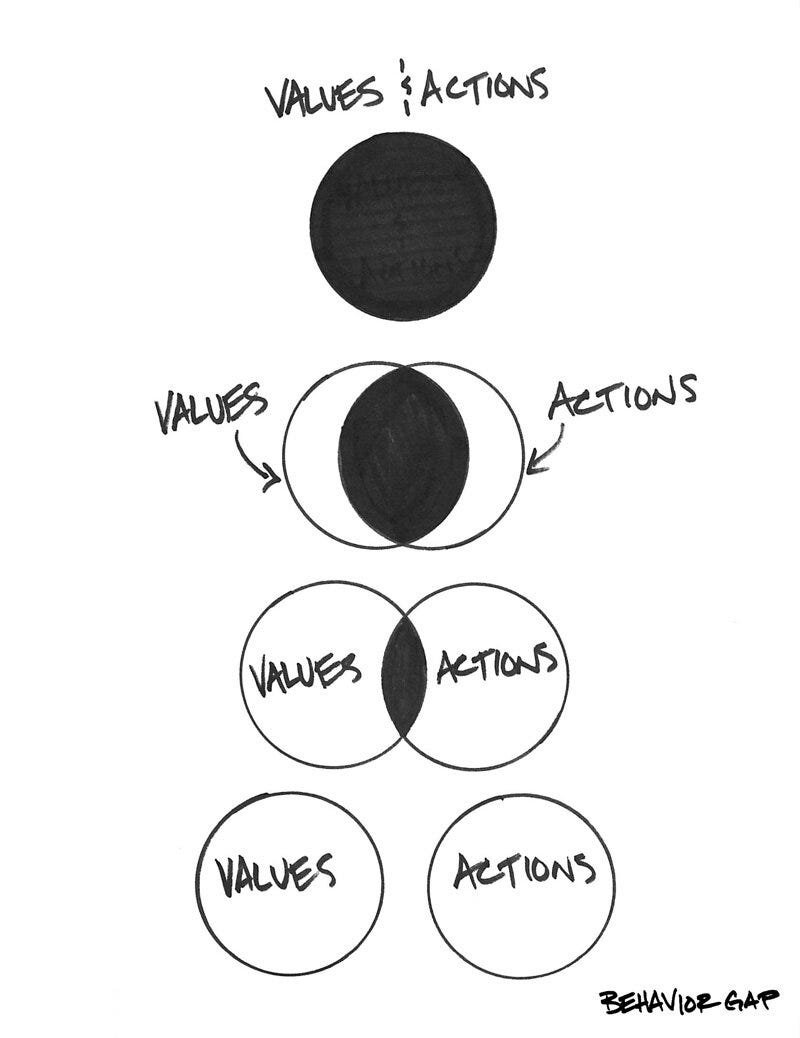Every dog owner dreams of a well-behaved furry companion by their side. Whether it’s mastering basic commands or conquering impressive tricks, effective dog training is a journey that requires patience, consistency, and most importantly, proper nutrition. Just like humans, dogs function at their best when fueled by a balanced diet. It’s time to discover the extraordinary connection between nutrition and training, and how a wholesome diet can give your four-legged friend the edge they need to become a star in the training arena. As we delve into the world of canine nutrition, prepare to unveil the secrets that will shape your dog’s training success, one nutritious bite at a time.
Table of Contents
- Proper Nutrition: The Foundation of Effective Dog Training
- Unlocking the Connection Between Diet and Behavioral Development
- Fueling Your Dog’s Performance: Choosing the Right Nutrients
- The Power of Balanced Meals: Enhancing Focus and Trainability
- Optimal Nutrition for Maximum Performance: Key Considerations
- Q&A
- Final Thoughts

Proper Nutrition: The Foundation of Effective Dog Training
When it comes to training our canine companions, many factors contribute to their success. However, one crucial element often overlooked is proper nutrition – the foundation on which effective dog training stands. Just like athletes need the right fuel to perform at their best, dogs require a balanced and nutritious diet to reach their full potential.
So, what exactly does “proper nutrition” entail for our furry friends? Let’s explore:
- Quality Dog Food: Opt for high-quality dog food that is specifically formulated to meet your pet’s needs. Look for options that contain essential nutrients like proteins, vitamins, and minerals to support your dog’s overall health and promote cognitive development.
- Portion Control: Maintaining a healthy weight is crucial for your dog’s well-being. By correctly portioning meals and avoiding overfeeding, you can ensure your dog receives enough energy to stay active without excess weight gain that can hinder their training progress.
- Treats, the Right Way: While treats can be an excellent training tool, it’s crucial to choose them wisely. Opt for treats that are low in calories, beneficial to dental health, and free from harmful ingredients. Remember to use treats as a reward, not as a substitute for a balanced diet.
By focusing on proper nutrition, you give your furry friend a solid foundation for success in their training journey. Remember, a well-nourished and healthy dog is happier, sharper, and more receptive to learning. So, let’s prioritize their nutrition alongside their training exercises, and watch our beloved pups thrive!

Unlocking the Connection Between Diet and Behavioral Development
In recent years, researchers have been delving deeper into the fascinating relationship between diet and behavioral development. It turns out that what we eat not only affects our physical health but also has a significant impact on our cognitive function and emotional well-being. By understanding and harnessing this connection, we can potentially unlock new ways to promote healthy behavioral development.
1. Nutrient-rich diet: A diet rich in essential nutrients is crucial for supporting proper brain function and development. Nutrients like omega-3 fatty acids, iron, zinc, and B vitamins play a vital role in enhancing cognitive performance and emotional stability. Including foods such as fatty fish, leafy greens, eggs, nuts, and whole grains in our diet can provide these essential nutrients.
2. Gut-brain axis: Emerging research has uncovered the intricate communication network between our gut and brain. The gut microbiome, a collection of trillions of microorganisms residing in our digestive system, plays a key role in neurotransmitter production and regulation. Consuming probiotic-rich foods like yogurt, kefir, and fermented vegetables can help maintain a healthy gut-brain axis, potentially influencing our behavior and mood.
3. Sugar and behavior: While occasional indulgence is harmless, excessive consumption of added sugars has been linked to behavioral problems in both children and adults. High sugar intake can lead to blood sugar spikes, causing fluctuations in energy levels and mood swings. It’s important to be mindful of our sugar consumption and opt for healthier alternatives like fruits or natural sweeteners like honey.
By recognizing the intricate connection between diet and behavioral development, we have the power to make informed choices and support healthy cognitive and emotional growth. Incorporating nutrient-rich foods, fostering a balanced gut microbiome, and being mindful of sugar intake are small yet significant steps towards unlocking the potential of healthy behavioral development.

Fueling Your Dog’s Performance: Choosing the Right Nutrients
Dogs, just like humans, require the right nutrients to perform at their best. Whether your furry friend is an active athlete, a working dog, or simply a lively companion, ensuring they have a balanced diet is crucial for their overall health and performance. Let’s take a closer look at some key factors to consider when choosing the right nutrients for your canine companion.
- Varying Protein Needs: Proteins are the building blocks of muscles, and dogs with active lifestyles may require higher protein intake to support their muscle development and recovery. Consult with your veterinarian to determine the appropriate protein percentage for your dog’s unique needs.
- Energetic Carbohydrates: Carbohydrates are an essential energy source for dogs. Opt for complex carbohydrates such as whole grains and vegetables, which provide long-lasting energy without causing energy spikes or crashes.
- Vitamins and Minerals: Just like humans, dogs need a range of vitamins and minerals to support their bodily functions. Ensure your dog’s diet includes a variety of fruits, vegetables, and supplements to provide them with the necessary micronutrients.
Remember that each dog is unique, and their nutritional requirements may vary based on age, breed, size, and activity level. Regularly consult with your veterinarian to assess and adjust your dog’s diet as needed. By providing your furry friend with the right nutrients, you’ll be supporting their performance and overall well-being.
The Power of Balanced Meals: Enhancing Focus and Trainability
Having a balanced diet is not only important for physical health but also plays a crucial role in enhancing focus and trainability. The food we consume acts as fuel for our body and brain, influencing our energy levels, cognitive performance, and overall mental well-being.
When we provide our bodies with a balanced mix of nutrients, vitamins, and minerals, we create the perfect conditions for optimal focus and trainability. Here are some key benefits of incorporating balanced meals into our daily routine:
- Improved Mental Clarity: A balanced diet rich in fruits, vegetables, whole grains, and lean proteins nourishes the brain, improving cognitive functions such as memory, attention, and problem-solving skills.
- Sustained Energy Levels: Foods containing complex carbohydrates release energy slowly, providing a steady source of fuel for both the body and mind throughout the day. Say goodbye to mid-afternoon crashes!
- Enhanced Mood and Motivation: Proper nutrition supports the production of neurotransmitters like serotonin, which are essential for maintaining a positive mood and reducing stress. A balanced diet can also boost motivation, helping us stay focused and driven to achieve our goals.
In conclusion, fueling our bodies with balanced meals not only satisfies our taste buds but also enhances our ability to concentrate and perform at our best. So, let’s embrace the power of nutrition and unlock our full potential!
Optimal Nutrition for Maximum Performance: Key Considerations
When it comes to maximizing your performance, nutrition plays a vital role in ensuring that your body is fueled and ready to tackle any challenge. Here are some key considerations to keep in mind when planning your optimal nutrition:
- Macronutrient Balance: Ensuring a proper balance of macronutrients is crucial for overall performance. Include a variety of protein sources to aid in muscle repair and recovery, high-quality carbohydrates to fuel your workouts, and healthy fats for sustained energy.
- Micronutrients: Don’t forget the importance of micronutrients! These essential vitamins and minerals support overall health and play a crucial role in numerous bodily processes. Incorporate a colorful array of fruits and vegetables to ensure you’re getting a wide range of micronutrients.
- Hydration: Staying hydrated is key to optimizing performance. Dehydration can negatively impact energy levels, endurance, and focus. Aim to drink water consistently throughout the day and consider sports drinks or electrolyte solutions during intense workouts or prolonged activities.
- Timing and Frequency: The timing and frequency of your meals can greatly influence performance. Fueling your body with smaller, balanced meals throughout the day can provide a steady stream of energy and prevent crashes. Additionally, consuming a meal or snack containing a combination of carbohydrates and protein within 30 minutes after exercise can aid in muscle recovery.
- Individual Needs: Every individual is unique, and their nutrition needs may vary. Consider consulting with a registered dietitian or sports nutritionist who can assess your specific requirements and tailor a nutrition plan to optimize your performance.
By keeping these key considerations in mind, you can ensure that you’re providing your body with the optimal nutrition it needs to perform at its best.
Q&A
Q: Why is proper nutrition important for effective dog training?
A: Proper nutrition plays a crucial role in dog training as it enhances their overall health and vitality, enabling them to focus and learn more effectively.
Q: What are the key nutrients that contribute to optimal dog training performance?
A: Essential nutrients such as proteins, healthy fats, carbohydrates, vitamins, and minerals are vital for a dog’s cognitive function, muscle development, and stamina, all of which are essential for effective training sessions.
Q: How does a well-balanced diet impact a dog’s behavior during training?
A: A well-balanced diet ensures that a dog remains energized, focused, and ready to learn, reducing behavioral issues and promoting a positive training experience for both the dog and the owner.
Q: Can a dog’s diet affect their attention span during training sessions?
A: Absolutely! A dog’s diet directly impacts their attention span. A diet rich in brain-boosting nutrients like omega-3 fatty acids and antioxidants can enhance their cognitive function and concentration, leading to longer and more effective training sessions.
Q: Is it necessary to give treats during training, and if so, what type of treats are best?
A: While not essential, treats can be a powerful motivator during training. Opt for healthy, low-calorie treats made with real meat or vegetables, as they provide the necessary reward without compromising your dog’s diet.
Q: How does hydration contribute to effective dog training?
A: Proper hydration is crucial for a dog’s overall well-being and training performance. Dehydration can lead to decreased energy levels and negatively impact their focus, making it vital to always provide fresh water before and after training sessions.
Q: Are there specific dietary considerations for different breeds or ages?
A: Yes, different breeds and ages have varying nutritional needs. Puppies require diets high in protein and healthy fats for growth, while older dogs may benefit from joint-supporting supplements. Consulting with a veterinarian can help determine the best approach for your dog.
Q: Can improper nutrition hinder the training progress of a dog?
A: Improper nutrition can indeed hinder a dog’s training progress. A lack of essential nutrients can result in low energy levels, difficulty concentrating, and an increased likelihood of behavioral issues during training, making a balanced diet crucial for successful training outcomes.
Q: Are there any specific human foods that should be avoided when training a dog?
A: Yes, certain human foods like chocolate, grapes, garlic, and onions can be toxic to dogs and should be strictly avoided. Treat your furry friend with dedicated dog treats or consult with a veterinarian to ensure you’re providing safe and appropriate rewards during training.
Final Thoughts
As we bid adieu to this insightful journey into the world of dog training, we can’t help but acknowledge the profound impact that proper nutrition has on this remarkable endeavor. Through the interplay of wholesome sustenance and effective training techniques, we have uncovered a harmonious symphony that orchestrates a well-rounded and vibrant canine companion.
From the very first moments, we have delved into the importance of a balanced diet bursting with essential nutrients. We witnessed how these remarkable fuel sources not only nourish our furry friends, but also lay the foundation for strong bones, agile minds, and boundless energy. A well-fed pup is a confident and motivated one, ready to conquer any training challenge that comes their way.
As we ventured deeper into the training techniques, we were awed by the remarkable transformation that proper nutrition can yield. We witnessed the impressive synergy between a dog’s mind and body when fueled with wholesome goodness. Their ability to absorb, retain, and execute commands became an extraordinary testament to the power of a thoughtfully crafted diet.
But let us not forget the untiring dedication and unwavering love that trainers invest in their four-legged pupils. The expertise and wisdom shared on this journey have truly shown that nutrition is not just about sustenance; it is a bond that bridges the gap between trainers and their lovable companions. It is the secret ingredient that unlocks the full potential within each and every dog.
So as we conclude this exploration, let us cherish the invaluable knowledge gained and embrace the transformative possibilities that proper nutrition and effective dog training provide. Let us embark on this shared mission to equip our furry companions with the tools they need to thrive, grow, and become the best versions of themselves.
May this article serve as a guiding beacon for both trainers and dog owners alike, reminding us of the immense impact that a well-rounded diet can have on the training journey. Together, let us nourish their hearts, fuel their minds, and ignite their spirits, for a harmonious and joyous partnership lies just around the corner, awaiting our faithful companions.
As an affiliate, my content may feature links to products I personally use and recommend. By taking action, like subscribing or making a purchase, you’ll be supporting my work and fueling my taco cravings at the same time. Win-win, right?
Want to read more? Check out our Affiliate Disclosure page.